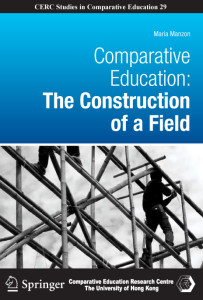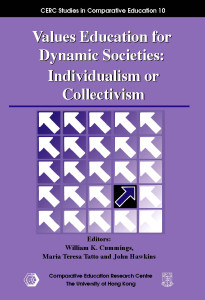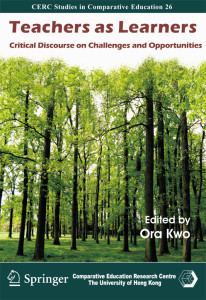Description
This book is a remarkable feat of scholarship – so remarkable in fact that I put it in the same league as the great classics of the field that had so much to do with setting the direction of Comparative Education. Indeed, this volume goes further than earlier classics to reveal, through textual analysis and interviews with key figures, how the epistemological foundations of the field and crucial professional developments combined to, as the title indicates, construct Comparative Education.
Manzon’s work is indispensable – a word I do not use lightly – for scholars who seek a genuine grasp of the field: how it was formed and by whom, its major theoreticians, its professional foundations, and so on. Clearly too, this book marks the rise of a young star, Maria Manzon, who shows promise of joining the ranks of our field’s most illustrious thinkers.
Erwin H. Epstein
Director, Center for Comparative Education
Loyola University, Chicago, USAAlso: Review published in the journal Comparative Education, Volume 48, Number 3, 2012: 403-406
Review published in Revista Latinoamericana de Educación Comparada, Año 3, Nº3, 2012
Review published in Comparative Education Review, Volume 56, Issue 2, 2012: 320-323
Review published in International Review of Education, Volume 59, Issue 1, 2013: 137–139
Review published in German in Bildung und Erziehung, Volume 66, Issue 2, 2013: 236-238
Review published in Asia Pacific Journal of Education, Volume 34, Number 2, 2014: 255-257
Maria Manzon is an Associate Member of the Comparative Education Research Centre (CERC) at the University of Hong Kong. She was Editor of CIEclopedia in 2009 and 2010, and Assistant Secretary General of the World Council of Comparative Education Societies (WCCES) in 2005.
Readers interested in this title might also be interested in Common interests, Uncommon Goals: Histories of the World Council of Comparative Education Societies and its Members

















